Agenda | Logistics | Speakers | Participants |Program Organizers
The Science of Alzheimer’s Disease and Related Dementia (ADRD) for Social Scientists Workshop aims to provide social science researchers with biomedical and clinical foundations of ADRD, advance interdisciplinary collaborations, and promote data sharing. World renowned experts provide scientific lectures geared specifically toward social scientists.
The workshop is hosted by the Center for Advancing Sociodemographic and Economic Study of Alzheimer’s Disease (CeASES ADRD) and Minority Aging Health Economics Research Center (USC AD-RCMAR) through funding from the National Institute on Aging, award numbers P30AG066589 and P30AG043073.
The two-day program will take place at USC’s University Park Campus in Los Angeles, California on October 27 to 28, 2022. Applications are closed for this year.
- Event Date
- Thursday, October 27, 2022 – Friday, October 28, 2022
- Location
- 705 W 34th St, Los Angeles, CA 90089
Agenda
Please click here to view the 2022 agenda.
For programmatic questions, contact Johanna Thunell.
Logistics
View event logistics here including directions, lodging, reimbursement and COVID protocols.
For administrative and logistical questions, contact Haley Garland.
Speakers
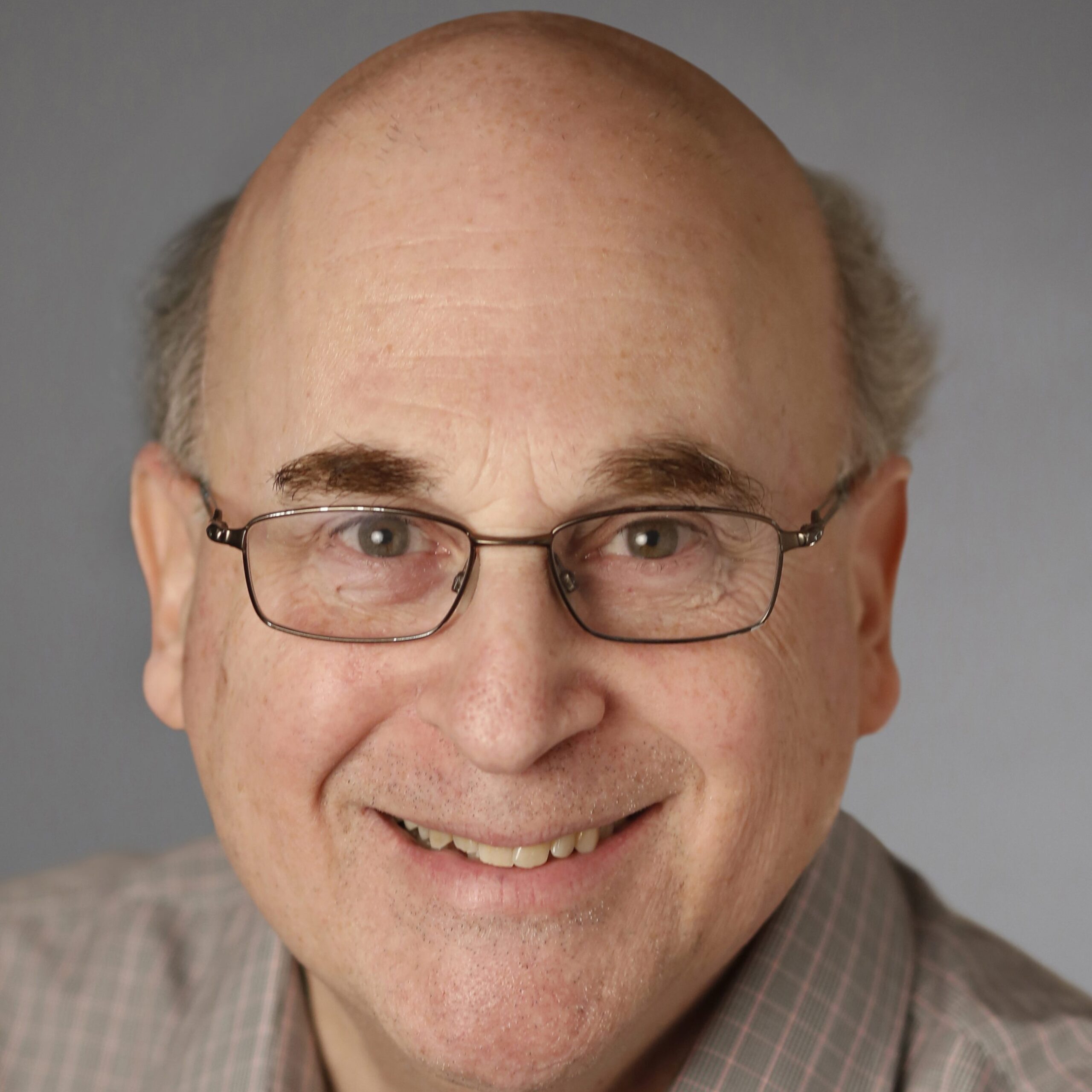
Paul Aisen, MD
Paul Aisen, MD, is a Professor of Neurology and the founding director of USC Alzheimer’s Therapeutic Research Institute (ATRI). Aisen has been a leading figure in Alzheimer’s disease research for more than two decades, having developed novel methodologies and designed and directed many large therapeutic trials. He received his B.A. in biochemistry and molecular biology from Harvard and his medical degree from Columbia. He completed his residency at Case Western Reserve University in Cleveland and Mount Sinai Medical Center in New York, and then fellowship training in rheumatology at New York University. After serving as chief medical resident at Mount Sinai, he began a solo practice in internal medicine and rheumatology in New York. Aisen joined the faculty of Mount Sinai in 1994 and was recruited to Georgetown University in 1999 as a professor of neurology and medicine. That year, he founded the Memory Disorders Program, a clinical and research program for Alzheimer’s disease and related disorders. He continued basic research studies on therapeutic targets and biomarkers and designed and directed multicenter therapeutic trials. He became vice chair of the Department of Neurology at Georgetown in 2004. From 2007 through 2015, he was professor in the Department of Neurosciences at the University of California, San Diego and director of the Alzheimer’s Disease Cooperative Study.

David A. Bennett, MD
David A. Bennett, MD, is director of the Rush Alzheimer’s Disease Center and the Robert C. Borwell Professor of Neurological Sciences. The Rush Alzheimer’s Disease Center is a large, free-standing multidisciplinary research and clinical center that studies a wide range of common chronic conditions of aging, including Alzheimer’s disease, stroke, Parkinson’s disease, other neurodegenerative diseases, sleep, neuro- and behavior economics, decision making and well-being, and incorporates claims data. Studies range from community-based epidemiologic studies that incorporate molecular genomics, imaging and biomedical devices, to phase I to phase IV clinical trials. Dr. Bennett is internationally known for his research and is principal investigator of several studies funded by the National Institute on Aging, including the Religious Orders Study, the Rush Memory and Aging Project, and the Pathology Alzheimer’s and Related Disorders Study in Sao Paulo Brazil. Dr. Bennett leads projects designed to identify novel therapeutics for common neurologic diseases. He also directs the Regional Alzheimer’s Disease Assistance Center for Northern Illinois. He serves on numerous national and international advisory and editorial boards. He recently rotated off of the National Advisory Council on Aging for the National Institutes of Health. He has more than 1,100 peer-reviewed manuscript publications with more than 177,000 citations and an h index = 199. He received the Potamkin Prize in 2018, the most prestigious research award for dementia research.
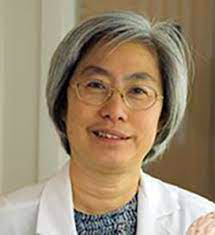
Helena Chang Chui, MD
Helena Chui, PhD, has been on the faculty of the Department of Neurology at the University of Southern California (USC) Keck School of Medicine since 1981. She is currently the Raymond and Betty McCarron Professor of Neurology and Gerontology, and since 2003, Chair of the Department of Neurology. The Department provides comprehensive outpatient and inpatient services for the full spectrum of neurologic conditions, conducts medical research, and trains the next generation of neurologists. Dr. Chui earned her B.A. in Chemistry and M.D. at Johns Hopkins University. She completed an internship, fellowship and residency in neurology at the University of Iowa in 1981, and is Board-certified in Neurology. She has considerable expertise in clinical, neuroimaging, and pathological evaluation of patients with cognitive impairment and dementia. Dr. Chui is internationally recognized for her research in Alzheimer disease and vascular cognitive impairment. She serves as multi-principal investigator for the NIA-funded Alzheimer Disease Research Center. She is the author of more than 225 peer-reviewed publications and 40 book chapters/review articles. She has served on the editorial board for Stroke, Alzheimer Disease and Associated Disorders, Archives of Neurology, and JAMA Neurology. Among her many honors are Best Doctors, Connolly’s Top Doctor, the Alzheimer Association Research Award (1991), California Science Center Muses Woman of the Year Award 2007, and USC Keck Excellence in Professionalism Award in 2018.
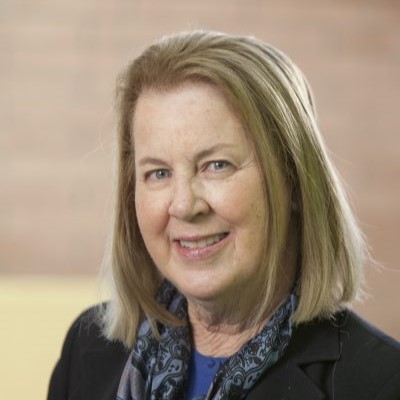
Eileen Crimmins, PhD
Eileen Crimmins, PhD, is a University Professor and the AARP Chair in Gerontology at the USC Leonard Davis School of Gerontology. She is a member of the National Academy of Sciences, the National Academy of Medicine, and a fellow of the American Association for the Advancement of Science. She is currently a director of the USC/UCLA Center on Biodemography and Population Health, one of the Demography of Aging Centers supported by the U.S. National Institute on Aging. She is also a Director of the Multidisciplinary Training in Gerontology Program and the NIA-sponsored Network on Biological Risk. Crimmins is a co-investigator of the Health and Retirement Study in the U.S. Much of Crimmins’ research has focused on changes over time in health and mortality. Crimmins has been instrumental in organizing and promoting the recent integration of the measurement of biological indicators in large population surveys. She co-chaired a Committee for the National Academy of Sciences to address why life expectancy in the U.S. is falling so far behind that of other countries. She has co-edited several books with a focus on international aging, mortality and health expectancy: Determining Health Expectancies; Longer Life and Healthy Aging; Human Longevity, Individual Life Duration, and the Growth of the Oldest-old Population; International Handbook of Adult Mortality; Explaining Diverging Levels of Longevity in High-Income Countries; and International Differences in Mortality at Older Ages: Dimensions and Sources. She has received the Kleemeier Award for Research from the Gerontological Society of America and the Matilda White Riley Award from the American Sociological Association, and the Tauber Award from the Population Association of America.
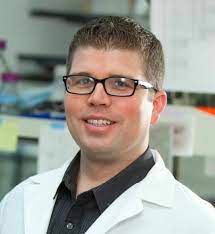
Sean Curran, PhD
Sean Curran, PhD, is a Professor of Gerontology and the Vice Dean of Faculty and Research. In addition, Dr. Curran serves as the James E. Birren Chair in Gerontology. His research focuses on understanding the regulatory control mechanisms that govern animal health across the entire lifespan. Decades of studies in the biology of aging have looked at extending lifespan as a measure of success. Although this approach has uncovered several potent regulators of animal lifespan, there are also examples of long-lived animals that exist in a decrepit state. Obviously, this was not the intent of biogerontologists as our actual goal is to increase health span, or the time of life spent in a healthy state. With this in mind, my research group has invested in defining molecular, genetic, and environmental factors that impact multiple parameters of health (resistance to environmental and dietary stress, mobility, metabolism, reproductive-fitness, and mitochondrial function) throughout life. Our goal then is not simply to push the limits of life expectancy, but rather to maximize the quality of health over the largest possible period of the lifespan. Our long-term goal is to generate blueprints that allow an individual to maximize health over the course of their lifespan. Informed by genetics, we develop the capacity to predict which diets are ideal for a healthy life and which should be avoided. Moreover, we investigate the mechanistic basis of the molecules, genes, and pathways we have discovered can influence healthspan. The product of this investment is the ability to use diet as a means to circumvent genetic predisposition and prevent or reduce the severity of age-related disease. Our research has benefited from the ability to quickly test several diet-gene pairs in C. elegans, which has allowed us to transition to directed studies in murine models. Although we will continue to exploit the utility of genetics and biochemistry of the worm, we expect that our mouse and cultured human cell approaches will synergize and provide relevant information for human aging.
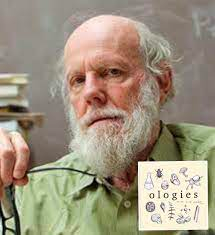
Caleb Tuck Finch, PhD
Sean Curran, PhD, is a Professor of Gerontology and the Vice Dean of Faculty and Research. In addition, Dr. Curran serves as the James E. Birren Chair in Gerontology. His research focuses on understanding the regulatory control mechanisms that govern animal health across the entire lifespan. Decades of studies in the biology of aging have looked at extending lifespan as a measure of success. Although this approach has uncovered several potent regulators of animal lifespan, there are also examples of long-lived animals that exist in a decrepit state. Obviously, this was not the intent of biogerontologists as our actual goal is to increase health span, or the time of life spent in a healthy state. With this in mind, my research group has invested in defining molecular, genetic, and environmental factors that impact multiple parameters of health (resistance to environmental and dietary stress, mobility, metabolism, reproductive-fitness, and mitochondrial function) throughout life. Our goal then is not simply to push the limits of life expectancy, but rather to maximize the quality of health over the largest possible period of the lifespan. Our long-term goal is to generate blueprints that allow an individual to maximize health over the course of their lifespan. Informed by genetics, we develop the capacity to predict which diets are ideal for a healthy life and which should be avoided. Moreover, we investigate the mechanistic basis of the molecules, genes, and pathways we have discovered can influence healthspan. The product of this investment is the ability to use diet as a means to circumvent genetic predisposition and prevent or reduce the severity of age-related disease. Our research has benefited from the ability to quickly test several diet-gene pairs in C. elegans, which has allowed us to transition to directed studies in murine models. Although we will continue to exploit the utility of genetics and biochemistry of the worm, we expect that our mouse and cultured human cell approaches will synergize and provide relevant information for human aging.
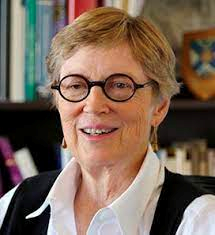
Margaret Gatz, PhD
Margaret Gatz, PhD, is Senior Scientist at USC Center for Economic and Social Research and Professor of Psychology and Gerontology. She studies the mental health of older adults, including risk and protective factors for Alzheimer disease, age-related change in depressive symptoms, and evaluation of the effects of interventions. She directs the Study of Dementia in Swedish Twins, a large longitudinal investigation of genetic and environmental factors in Alzheimer disease; she archived the NAS/NRC World War II Twin Registry for use by the scientific community; and she co-organized the international consortium on Interplay of Genes and Environment Across Multiple Studies (IGEMS). She is currently working with the Tsimane Health and Life History Project to study dementia in an indigenous Bolivian population. She is a Fellow of the American Association for the Advancement of Science and recipient of an honorary Doctor of Medicine degree from the Karolinska Institutet.
Duke Han, PhD
Duke Han, PhD, is a diplomate of the American Board of Professional Psychology in clinical neuropsychology, a Fellow of the American Psychological Association and the National Academy of Neuropsychology, Director of the Neuropsychology Division in the Department of Family Medicine, and a tenured Professor of Family Medicine, Neurology, Psychology, and Gerontology at the Keck School of Medicine of the University of Southern California. Han is interested in the factors that impact cognition and decision making in aging. He also has special interests in using novel neuroimaging and statistical approaches to better understand these factors. Han maintains an active research collaboration with the Rush Alzheimer’s Disease Center of Rush University Medical Center in Chicago, where he was most recently a tenured faculty member. He is the recipient of the Paul B. Beeson Career Development Award in Aging Research, which is supported by the National Institute on Aging, the American Federation of Aging Research (AFAR), and the John A. Hartford Foundation. Han is the primary investigator on numerous research grants extramurally funded by the National Institutes of Health (NIH) and private foundations, and he is actively involved in peer-review of research grants for the National Institute on Aging (NIA) and manuscripts for over 30 scientific journals. He is a founding member of the Governance Committee of the Global Council for Brain Health, an independent science collaborative convened by the AARP with help from AgeUK. His work has been featured in multiple international media outlets, including Reuters, CBS, PBS, Forbes, and U.S. News and World Report.
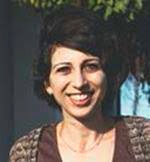
Neda Jahanshad, PhD
Neda Jahanshad, PhD, is an associate professor of neurology at the Imaging Genetics Center, part of the Stevens Neuroimaging and Informatics Institute at the University of Southern California. Dr. Jahanshad is a key developer for the ENIGMA consortium, which brings together hundreds of researchers around the world. These researchers work together to identify the genetic and environmental risk factors that make the brain susceptible to disease. She has over ten years of experience in analyzing brain scans from large groups of individuals, and comparing magnetic resonance imaging (MRI) scans of people with and without brain disorders of all ages. Much of her research explores the brain as a network of interconnected pathways using diffusion-weighted MRI, a technology that reveals physical connections between different functional areas of the brain. She holds undergraduate degrees from Johns Hopkins University and a PhD from University of California, Los Angeles.
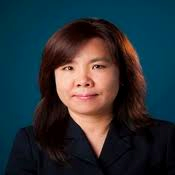
Jinkook Lee, PhD
Jinkook Lee, PhD, is a research professor of Economics and the Program Director of Global Aging, Health, and Policy at the Center for Economic & Social Research, University of Southern California. Her research interests include the economics of aging, centered around late-life cognition and dementia and their risk factors, health disparities across socioeconomic status and by gender, and cross-country differences in late-life health and wellbeing. She has led the development of an international data harmonization project, the Gateway to Global Aging Data (g2aging.org), which is a platform for population survey data on aging from 47 countries around the world. She has co-led the development and implementation of the Longitudinal Aging Study in India (LASI), a population-representative, multi-disciplinary survey of health and retirement and is the principal investigator of the Harmonized Diagnostic Assessment of Dementia for the Longitudinal Aging Study in India, an interdisciplinary project on dementia and cognitive aging. She currently serves on the advisory panels of population surveys in England, Ireland, Switzerland, China, Japan, Malaysia, Nepal, Egypt, Malawi, and Kenya. She also serves on the editorial boards for the Journal of Economics of Aging and the Journal of Aging and Social Policy and provides scientific advice and information for the World Health Organization, the Organization for Economic Cooperation and Development, and the World Bank. She previously held a professorship at Ohio State University and the Pardee RAND Graduate School and has been a faculty scholar at the Federal Reserve Board. She received her Ph.D. in family economics from Ohio State University and her B.S. from Seoul National University.

Elizabeth (Liz) Necka, PhD
Elizabeth (Liz) Necka, PhD, is a program director in the Individual and Behavioral Processes Branch of the Division of Behavioral and Social Research at the National Institute on Aging (NIA). At NIA, Dr. Necka directs a portfolio of basic and translational research focused on interpersonal relationships in aging and how they relate to health and well-being, with particular emphasis on dyadic interactions and informal caregiving. Her portfolio also includes research on aging-related processes social disconnection, social cognition, and pain. Prior to joining NIA, Dr. Necka was a AAAS Science and Technology Policy Fellow and served as a program officer in the Division of Translational Research at the National Institute of Mental Health, where she managed a portfolio of grants on the behavioral science of mental disorders and aging. Dr. Necka has served as a representative to the Office of Behavioral and Social Sciences Research and the Basic Behavioral and Social Science Opportunity Network (OppNet) and coordinator of the NIH Intramural Affective Neuroscience Seminar. She received her PhD in Psychology from the University of Chicago and completed her postdoctoral fellowship at the National Center for Complementary and Integrative Health. Her research focused on the role of social and interpersonal factors on health and cognition and psychophysiological regulation of social behavior.
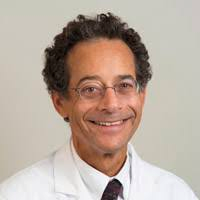
David Reuben, MD
David Reuben, MD, is Director, Multicampus Program in Geriatrics Medicine and Gerontology and Chief, Division of Geriatrics at the University of California, Los Angeles (UCLA) Center for Health Sciences. He is the Archstone Foundation Chair and Professor at the David Geffen School of Medicine at UCLA and Director of the UCLA Claude D. Pepper Older Americans Independence Center and the UCLA Alzheimer's and Dementia Care program. David has served as the Past President of the American Geriatrics Society, President of Directors of Geriatric Academic Programs (ADGAP) and Chair of the Board of Directors of the American Board of Internal Medicine. Dr. Reuben sustains professional interests in clinical care, education, research and administrative aspects of geriatrics, maintaining a clinical primary care practice of frail older persons and attending on inpatient and geriatric psychiatry units at UCLA. His bibliography includes more than 220 peer-reviewed publications in medical journals, 39 books and numerous chapters. Dr. Reuben is lead author of the widely distributed book, Geriatrics at Your Fingertips. Dr. Reuben is a past President of the American Geriatrics Society and the Association of Directors of Geriatric Academic Programs. He served for 11 years on the Geriatrics Test Writing Committee for the American Board of Internal Medicine (ABIM) and for 8 years on the ABIM's Board of Directors, including as Chair from 2010-2011.

Claire Sexton, DPhil
Claire Sexton, DPhil, is senior director, Scientific Programs and Outreach, at the Alzheimer’s Association. In this role, she leads research programs and initiatives to accelerate the Association’s scientific agenda. Dr. Sexton works with a committee of expert researchers to develop scientific programming for the Alzheimer’s Association International Conference® (AAIC®), the largest and most influential international meeting dedicated to advancing dementia science. Under Dr. Sexton’s leadership, the Association has significantly expanded its suite of scientific meetings to provide accessible education and networking opportunities, including the AAIC Satellite Symposia and AAIC Neuroscience Next. She is responsible for leading conference programming, including speakers, poster sessions and opportunities to foster collaboration. Dr. Sexton oversees strategy for the Alzheimer's Association International Society to Advance Alzheimer's Research and Treatment (ISTAART), an inclusive global network of scientists, clinicians and dementia professionals. She leads efforts to deliver opportunities for member engagement and education, including Professional Interest Areas (PIAs), networking sessions, informative webinars and more. As an expert in the field, Dr. Sexton delivers presentations to audiences around the country on the Association’s role in scientific advancements and the overall state of Alzheimer’s and dementia research. Prior to joining the Association, Dr. Sexton served as an Atlantic Fellow for Equity in Brain Health at the Global Brain Health Institute, where her research focused on modifiable factors associated with risk for Alzheimer’s and other dementias. Dr. Sexton received her doctoral degree in psychiatry from the University of Oxford, and she holds a bachelor’s degree in neuroscience from the University of Manchester.
Participants
Please click here to view the full list of 2022 participants.
Program Organizers

Julie Zissimopoulos, PhD
Associate Professor, USC Sol Price School of Public Policy Co-Director, Aging and Cognition Research Program, USC Schaeffer Center Principal Investigator, Center for Advancing Sociodemographic and Economic Study of Alzheimer’s Disease (CeASES ADRD) and Minority Aging Health Economics Research Center (USC-AD RCMAR)

Eileen Crimmins, PhD
AARP Professor of Gerontology, USC Leonard Davis School of Gerontology Associate Dean, USC Leonard Davis School of Gerontology, USC Andrus Gerontology Center Senior Fellow, USC Schaeffer Center Director, USC/UCLA Center on Biodemography and Population Health
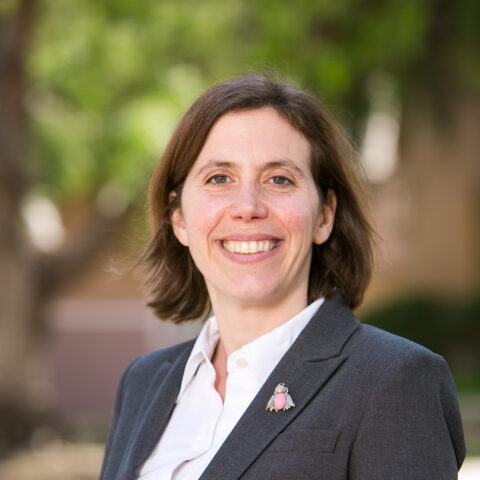
Mireille Jacobson, PhD
Associate Professor, USC Leonard Davis School of Gerontology Co-Director, Aging and Cognition Research Program, USC Schaeffer Center

Johanna Thunell, PhD
Research Scientist, USC Schaeffer Center for Health Policy and Economics Program Administrator, CeASES ADRD
This program is supported by the National Institute on Aging through CeASES ADRD and USC AD-RCMAR, award numbers P30AG066589 and P30AG043073.
- Event Date
- Thursday, October 27, 2022 - Friday, October 28, 2022
- Location
